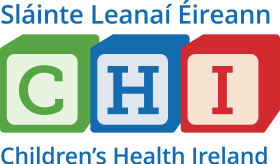New research reveals that lockdowns had an impact on gut microbes and allergies in newborns
New research reveals that lockdowns had an impact on gut microbes and allergies in newborns
29 Feabhra 2024
Gach suíomh CHI
News
Lockdowns imposed during the COVID-19 pandemic had an impact on the gut microbiome development of babies born during these periods according to new research from RCSI University of Medicine and Health Sciences, Childrens Health Ireland and APC Microbiome Ireland (APC), a world leading SFI Research Centre, based in University College Cork.
Our gut microbiome, an ecosystem of microbes that live in our digestive tract, plays an essential role in human health. The study published in Allergy[LA1] is the first to specifically explore the gut health of newborns in the pandemic. It revealed significant differences in the microbiome development of babies born during lockdown periods when compared to pre-pandemic babies. Babies born during lockdown also had lower than expected rates of allergic conditions, such as food allergies.
The findings highlighted gut health benefits for ‘pandemic babies’ arising from the unique environment of lockdown including lower rates of infection and consequent antibiotic use, and increased duration of breastfeeding. The newborns were found to have more of the beneficial microbes acquired after birth from their mother. These maternal microbes could be playing a protective role against allergic diseases.
Professor Jonathan Hourihane, Head of the Department of Paediatrics at RCSI, Consultant Paediatrician at Children’s Health Ireland Temple Street, who is joint senior author of the study, commented on the research’s implications:
“This study offers a new perspective on the impact of social isolation in early life on the gut microbiome. Notably, the lower allergy rates among newborns during the lockdown could highlight the impact of lifestyle and environmental factors, such as frequent antibiotic use, on the rise of allergic diseases. “We hope to re-examine these children when they are 5 years old to see if there are longer term impacts of these interesting changes in early gut microbiome."
Professor Liam O’Mahony, Principal Investigator at APC Microbiome Ireland and Professor of Immunology, at University College Cork is joint senior author. He added:
“While we all start life sterile, communities of beneficial microbes that inhabit our gut develop over the first years of life. We took the opportunity to study microbiome development in infants raised during the early COVID-19 era when strict social distancing restrictions were in place, as the complexity of early life exposures was reduced and this facilitated a more accurate identification of the key early life exposures. Prior to this study it has been difficult to fully determine the relative contribution of these multiple environmental exposures and dietary factors on early life microbiome development."
“One fascinating outcome is that due to reduced human exposures and protection from infection, only 17% of infants required an antibiotic by one year of age, which correlated with higher levels of beneficial bacteria such as bifidobacteria. The study has provided a rich repository of data, which we will continue to analyse and investigate in the future."
The researchers from RCSI, CHI and APC Microbiome Ireland analysed fecal samples from 351 babies born in the first three months of the pandemic, comparing these with pre-pandemic cohorts. The former were part of the CORAL (Impact of CoronaVirus Pandemic on Allergic and Autoimmune Dysregulation in Infants Born During Lockdown) project. Online questionnaires were used to collect information on diet, home environment and health. Stool samples were collected at 6,12 and 24 months and allergy testing was performed at 12 and 24 months.
'Association between Gut Microbiota Development and Allergy in Infants Born during Pandemic-Related Social Distancing Restrictions’ was carried out in collaboration with University College Cork, University of Helsinki, University of Colorado, Karolinska Institute Stockholm, Children’s Health Ireland, Rotunda Hospital and The Coombe Hospital.
The CORAL study was supported by the Temple Street Hospital Foundation in Dublin, Ireland and the Clemens von Pirquet Foundation in Geneva, Switzerland.
